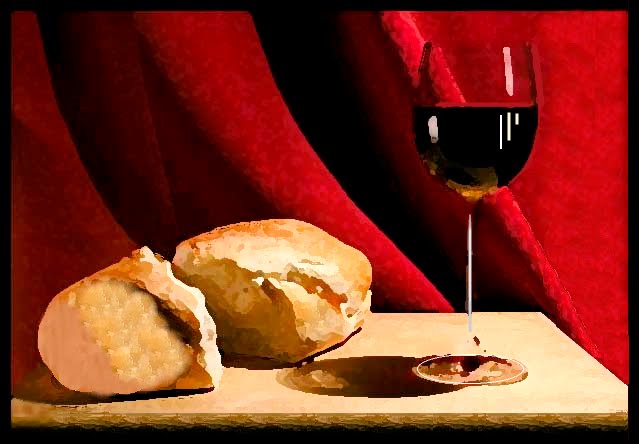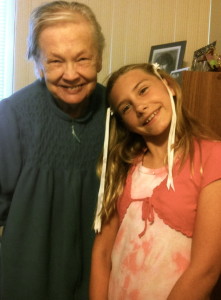October 6th, 2018
You Make Me Shine
You Make Shine
Written by Clif Magness and Debby Holiday
Please bear with me, Clif. 🙂
Recording this song demo 17 years ago was a perspective changer for me. Clif Magness, who co-wrote the song and produced it, is a Grammy award winning, Oscar-nominated producer, singer, songwriter, and all around consummate musician. And not least of things, a great guy. We attended the same church for many years, and it was there we became friends. I sang regularly in service and he lent his considerable gifts from time to time as his schedule allowed.
One day, late in 2001, I think, he called out of the blue and asked if I could come in and record a country-ish vocal for a song he was pitching to Faith Hill. I said yes, for obvious reasons, but was nonetheless perplexed. Why me? Surely he’s got a Rolodex full of more highly seasoned and qualified studio vocalists. I’m a voice actor by trade, not a singer. I’d long ago given up any notions of being a recording artist.
Anyway, the day came. I was rested and ready to sing, but a bit nervous, because, you know… Clif Magness. I’d never worked with a genuine music producer before. Not like him. He taught me the song in-studio, and I gave it my best. He did nothing but encourage and praise what came out of my mouth, and then began to do what he does so well: Produce the vocal; not with fancy knobs and effects on mysterious machines, but by talking to me. That is to say, he guided me through the song, speaking a singer’s language, and it nudged out of me something new; a sound I’d not really heard before. It seemed full, strong, confident. Foreign. I grew up learning to sing by mimicking Karen Carpenter, and while my vocal chords are uniquely mine, there was a softness and a sweetness in hers that I fully embraced in my own and, in ways, I’d never really learned to move beyond.
After about an hour, Clif had gotten what he needed. I took off my headphones and stepped out of the booth. I asked for a copy when it was finished, and off I went to the rest of my day. A few days later he told me the demo was finished and that if I was around I could drop by and pick up a CD copy.
I’m not exactly sure how to impart what came next, as it’s possible to be interpreted as both self-pity and self-aggrandizement. It is neither, I assure you. So, let me add a little context. Yes, I have always been a singer. From aged 9, it was THE thing for which I was praised and encouraged. Everyone around me knew this was my “destiny” and spoke in such terms. It was “only a matter of time,” my father would say with confidence, well into my 30s, as if all one must do with “talent such as mine” is wait to be discovered like Lana Turner at Schwab’s. But what all of those dear, encouraging people in my youth didn’t know, the thing of which they are blissfully unaware is when it comes to carving out a career in the music business as a female recording artist, time is not your friend and talent is last in line. For fun, though, let’s assume the talent, okay? Then there are those two simultaneously Cruel and Magnanimous intertwined Creatures: TIMING and LUCK, or magic, the alignment of the stars, whatever you wanna call the pesky pair. I mean there are myriad other bits as well: trends, marketability, looks, charisma, all of that plays a part – especially for women. Then there is the stuff we’ve only begun to speak out loud. Only looking backward has it become obvious that my refusal to sleep with the music director (more than twice my age) on a solo project I was “lucky” to be working on at CBS Records in 1981( at the tender age of 19) brought the entirety of it to a screeching halt. Careers in any creative business require insane perseverance, too. Even a man as ridiculously talented and successful as Clif Magness can tell you, the work never ends. You never arrive. A Grammy and 4 bucks’ll get you a latte, a friend once told me. You keep at it, shoulder to the wheel. You continue to reinvent. But when it comes to female vocalists starting in the music business, age plays an undeniably big part. I’d like to say some of that is changing, but just like in the world of Acting, and even Voiceover, the changes are superficial. I’m not ungrateful for those small changes, by the way, but I am a realist. I knew from the time I hit 30 (um… 26 years ago) that EVEN IF everything else was perfectly aligned, my chances of being a successful recording artist in my own right, as it traditionally played out back then, were not even slim, they were none.
Back to the song… I got the CD from Clif’s mailbox where he’d placed it for me, got back in my car and popped it in the player. Now. How do I describe what proceeded to explode in my ears? The difference in production value was so stark (that is, so much BETTER) compared to my own self-made demos it sent a shudder through my bones. And the vocal. My vocal? Who the hell was that? Me? Really? Whoever it was, she was fantastic. I listened over and over, trying to figure out how that could have possibly come out of me, and more importantly, to figure out why I was so turned upside down, so… unsettled by it.
A few weeks later, Clif and his wife Carole invited us over for dinner, and during the course of conversation, I thanked Clif for making me sound so good on the demo. He just smiled at me quizzically and said, quite matter-of-factly, “That was all you. You know you’re every bit the singer Faith Hill is. It’s in you.”
Later that night I went home and listened again (this was a thing I was working out in my psyche, not self-indulgence, I swear) and it dawned on me that over the years, as I had slowly backed myself out of the music business, (for not unsound reasons, mind you) I’d told myself I just wasn’t good enough. This song, this little demo, recorded a few months before my 40th birthday, was Validation. With a capital V. I had the goods. I Could’a Been A Contender, too, Mr. Brando. More than a few tears were shed that night. Not out of regret, really, but out of a sense of gratitude for this crazy little gift I’d been given – confirmation of what I’d known since I was 9, but had forgotten: I am. A Singer.
I’m relieved my childhood dream was unrealized. God’s a funny guy that way. I think a career in the music business might’ve killed me – by drink and drugs or any number of forms of self-destruction. I did not, and do not, have the constitution for it. But over the course of 33 years, with my shoulder to another wheel, I have cultivated this marvelous, creative, under-the-radar-like-I-like-it career as a voice actor, which feeds me both literally and creatively. And I still get to sing – in church, as animated characters, in my car, in the kitchen as I cook, and occasionally live and on demos for creative friends who are still at it, too. Toby Petrie, Jefferson Denim, Steve Mackall, Taylor Mackall, Katheryne Levin and others – because they still know what I had forgotten. That it brings joy to people, no matter how small or eclectic the listenership, is icing on the tasty cake that is my life.
I know you were just doing what you do every day when you had me record that vocal, Clif, and it’s a little late to be saying this but, thank you for asking me. It rocked my world in a most meaningful way.


